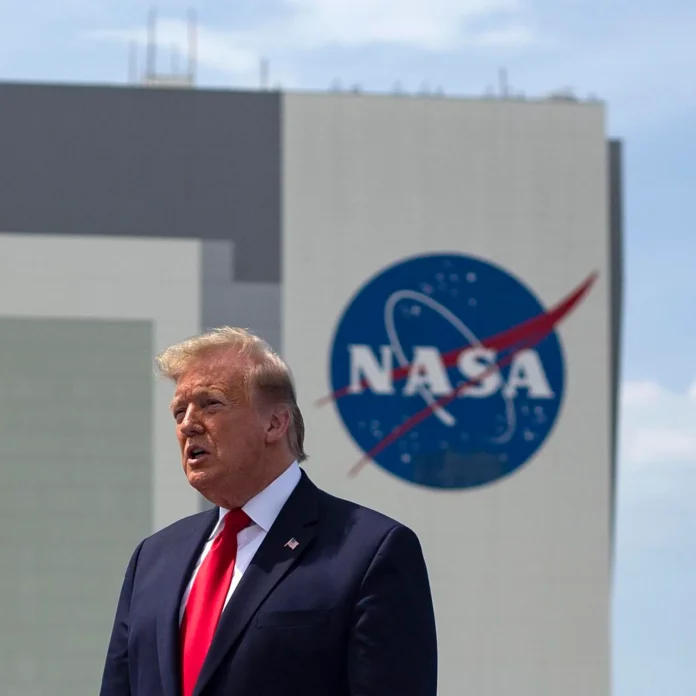The Trump administration’s proposed 2026 federal budget aims to cut NASA’s funding by $6 billion. This reduction would impact key programs, including mission support and the Gateway International Space Station. However, the budget also includes a significant boost of $1 billion for Mars missions.
The proposed budget, outlines how NASA’s funds will be reallocated. The overall NASA budget would drop from $24.8 billion in 2025 to $18.8 billion in 2026. This marks a 24% cut in the space agency’s funding. However, the budget refocuses NASA’s priorities on returning humans to the Moon and landing on Mars. More than $7 billion would go toward lunar exploration, and over $1 billion would accelerate Mars mission programs.
The key phrase Mars mission funding underscores the administration’s shift in focus toward interplanetary exploration. The proposed budget would drastically reduce funding for space science, Earth science, and legacy human exploration systems. These cuts could total $2.3 billion for space science, $1.2 billion for Earth science, and nearly $900 million for human exploration.
Janet Petro, NASA’s acting Administrator, commented on the budget. She acknowledged that the lean budget would require tough decisions but reaffirmed the administration’s commitment to its core mission. She urged NASA to remain resilient in navigating this constrained environment.
However, some programs would face elimination. NASA would discontinue its sustainable aviation efforts and eliminate funding for diversity, equity, inclusion, and accessibility (DEIA) initiatives.
Despite these cuts, private sector companies like SpaceX are pushing forward with Mars missions. Elon Musk, SpaceX’s CEO, recently stated that his company’s Starship rocket could carry crew and cargo to Mars and beyond. Musk even suggested that human landings on Mars could begin by 2029, though 2031 is a more likely target. He also introduced the Tesla humanoid robot Optimus, which may play a role in future Mars missions.
In addition to the funding changes, NASA would retire the Space Launch System (SLS) rocket and Orion spacecraft. While the agency would cease its Mars Sample Return (MSR) Program, private aerospace companies such as ULA and Jeff Bezos’ Blue Origin could step in to support future launches.
for more tech updates, visit DC Brief.


